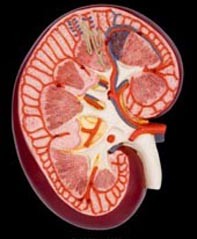Peer Reviewed
Feature Article Renal medicine
Chronic kidney disease. Part 2: complications and end-stage renal disease
Abstract
The risk of complications developing increases as renal function decreases. Individuals with chronic renal failure should have a realistic expectation of the outcomes of dialysis as it is not the solution for all patients.
Key Points
- The complications of chronic kidney disease include metabolic acidosis, hyperkalaemia, vitamin D deficiency, hyperparathyroidism and anaemia, and lead to malnutrition and renal bone disease.
- The risk of developing complications increases progressively as renal function is lost.
- Discussion about the issue of dialysis should occur early to allow time for education, vaccination, preservation of veins and appropriate choices concerning dialysis options, transplantation or conservative management.
- Patients with chronic renal failure should have a realistic expectation of the outcomes of dialysis. It is not the solution for all patients.
- The presence of multiple comorbidities precludes kidney transplantation in many patients. Due to decreasing deceased donor rates more live donor than deceased donor kidney transplantations are now being performed.
- Conservative management, in which medical management is undertaken to control the consequences of renal impairment, is a valid option for some patients with end-stage renal disease.
Purchase the PDF version of this article
Already a subscriber? Login here.

